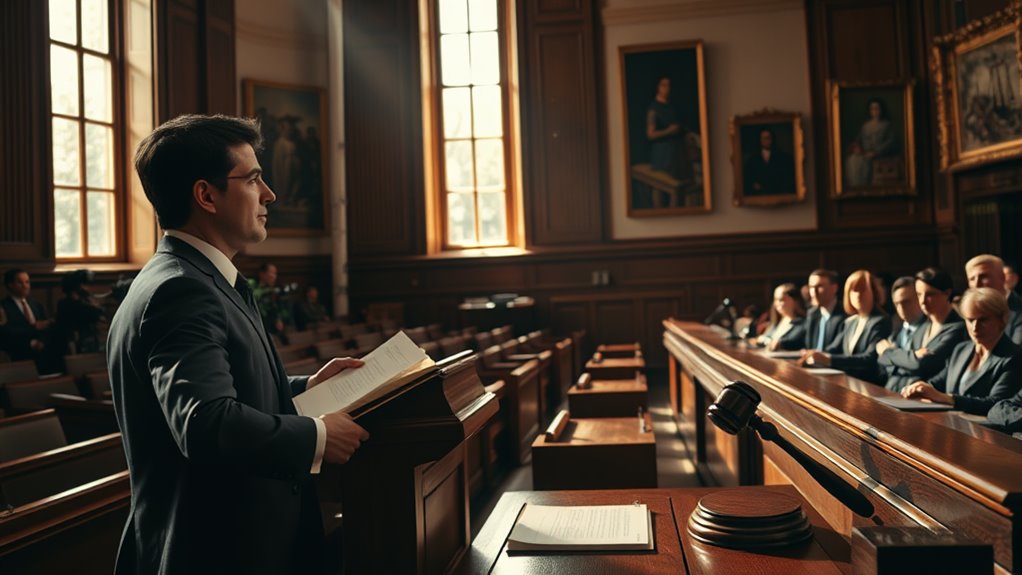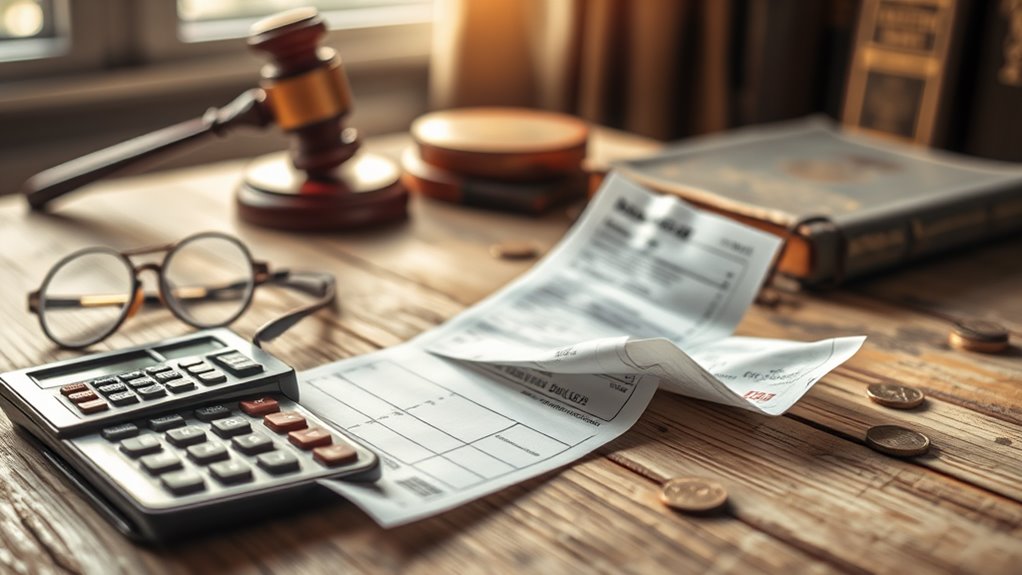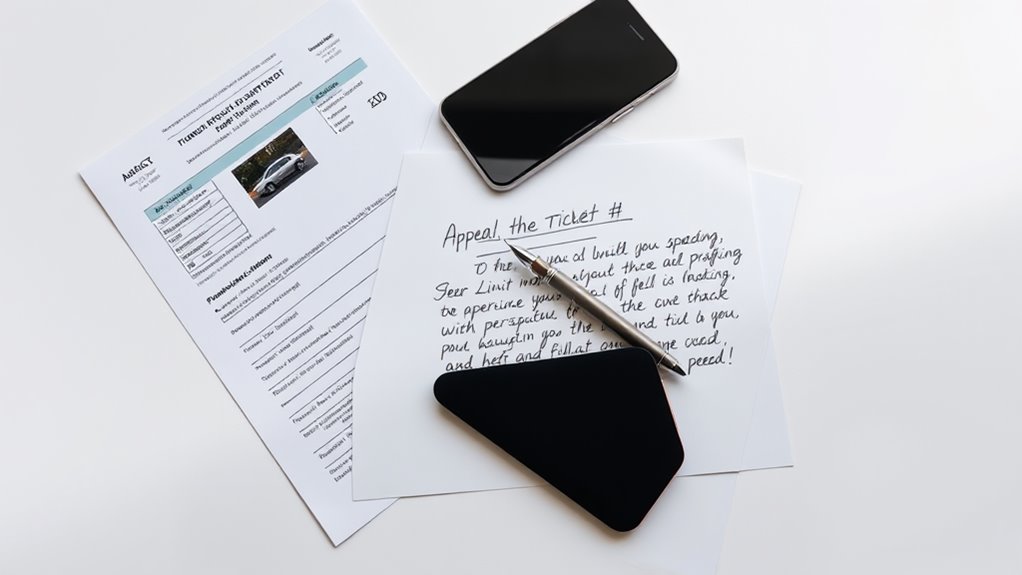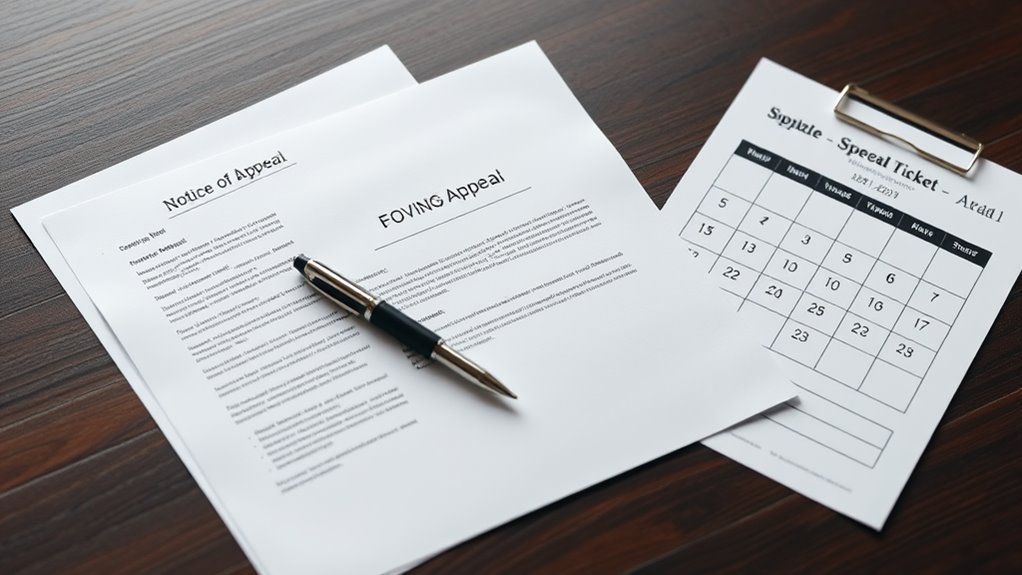Successfully Appeal Your Speeding Ticket: A Guide
If you've received a speeding ticket, you might feel overwhelmed by the process of appealing it. However, understanding the steps involved can greatly increase your chances of success. From identifying errors on the ticket to gathering compelling evidence, each action you take matters. In this guide, you'll learn how to effectively challenge the ticket and present your case, ensuring you're well-prepared for the hearing ahead. Are you ready to take control of your situation?
If you've recently received a speeding ticket, appealing it might be your best option to avoid costly fines and insurance hikes. Your first step is understanding the grounds for your appeal. Look for any errors on the ticket, such as an incorrect license plate number or a wrong location. These inaccuracies can strengthen your case. Additionally, if the evidence provided by law enforcement is insufficient, you can argue that the ticket lacks substantial proof. Pay attention to any improper procedures followed by the issuing officer, as these can also serve as valid grounds for your appeal.
Mitigating circumstances can play an essential role in your defense. If you were speeding due to an emergency, document that situation thoroughly. Some jurisdictions require officer signatures on tickets; if yours lacks one, you may have a strong basis for appeal. Gathering evidence is key. Capture photographs or videos of the scene, along with witness statements from bystanders or passengers. You can also challenge the speed measurement by obtaining technical evidence, such as radar or speed camera data. Consider seeking expert testimony to support your claims, particularly if you're disputing the technology used to measure your speed. Remember that road conditions can affect speed limits, so gather evidence about visibility or signage that may have impacted your awareness of the speed limit. A traffic lawyer can help you navigate complex legal issues related to your case.
When preparing your appeal letter, start with a polite introduction, acknowledging the infraction while clearly stating your legal grounds for appeal. Summarize the evidence you've gathered to support your case. Confirm your argumentation is concise and directly explains why the ticket should be overturned. Don't forget to include proof of service to show that your appeal was properly filed, along with the citation details such as the ticket number, date, and location.
Filing your appeal requires attention to detail. Make sure to do this within the specified timeframe, typically around 30 days. Be prepared to pay a non-refundable fee, which varies by jurisdiction. You can file online or by mail, but confirm you provide all required information, including your DMV ID, name, birth date, and address. After submission, confirm receipt of your application and keep note of any reference number.
As you approach the hearing, prepare thoroughly. Review all evidence and practice your presentation style. You'll want to come across as respectful, focused, and concise. The success of your appeal often hinges on the strength of your case and how well you present it. If necessary, you can request a continuance for more preparation time. Throughout the process, maintain a professional demeanor.
Legal strategies can enhance your appeal. Challenge the accuracy of equipment used to measure speed, create doubt by questioning the officer's testimony, and argue any obstructions affecting your awareness of speed limits. Highlighting that this is your first offense may elicit leniency. While considering hiring a traffic lawyer can incur costs, the potential savings from avoiding fines and insurance increases can be significant, making it a worthy investment.
Conclusion
To sum up, appealing your speeding ticket can be a viable option if you approach it strategically. Did you know that nearly 70% of contested tickets are dismissed due to procedural errors or lack of evidence? By identifying mistakes on your ticket, gathering strong evidence, and presenting a clear appeal, you increase your chances of success. Remember to stay professional throughout the process, as your demeanor can influence the outcome. Don't let a ticket define your driving record!






